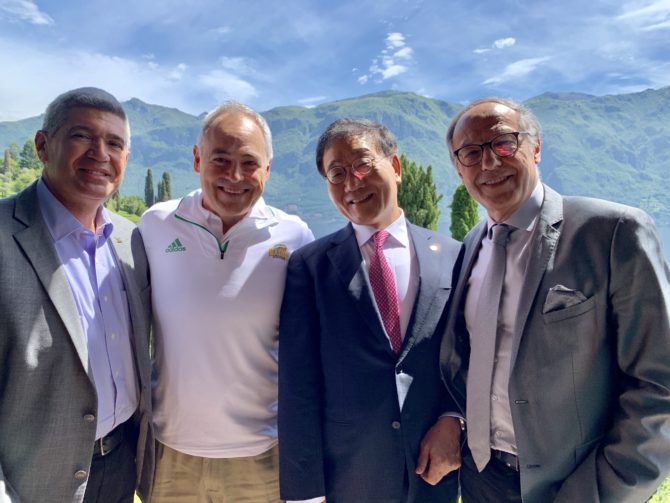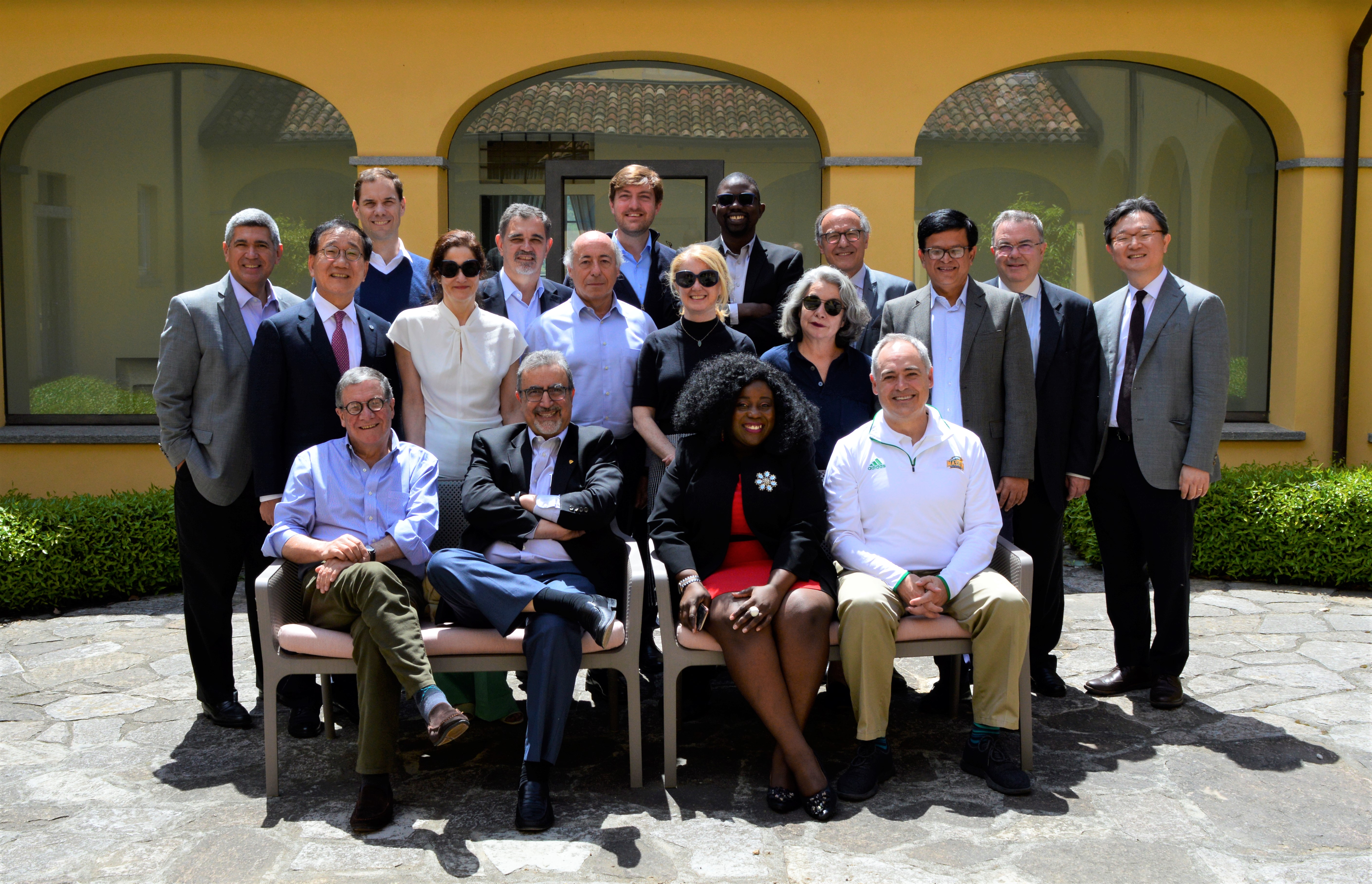Inspired by the Declaration on University Global Engagement (endorsed by more than 100 universities and higher education associations) and with the support of the Rockefeller Foundation, a group of university presidents and higher ed leaders from Europe, Asia, Africa, North and South America met last week at the Bellagio Center in Italy with representatives from the United Nations, the Sustainable Development Solutions Network and Brookings to share our experiences and discuss how we can best collaborate and engage in support of the Sustainable Development Goals.
The consensus of the participants in the Bellagio Conference was that universities not only have an opportunity, but an obligation, to do whatever is in their power to educate and inspire students to play an active role in addressing the most pressing issues confronting our world today, produce new ideas that can lead to new solutions, and collaborate with other organizations to create awareness, support and even lead local and global efforts.
Our work culminated in the proposal of a University Global Compact, a global platform of universities and other higher education organizations committed to working together and in partnership with the United Nations in support of the Sustainable Development Goals both locally and globally through our education, research and service missions.

Because issues underpinning the Sustainable Development Goals are so complex, lasting solutions will only be achieved through multidisciplinary, cross-sectorial, collaborative approaches, which require new ways of thinking, new talent, and new ideas. Indeed, Goal 17 specifically calls for multi-stakeholder partnerships at the local, national and international levels.
Universities have long worked across borders, helping expose students to different cultural, social and economic realities, and conducting research in distant locations. The Sustainable Development Goals make it clear that global engagement in higher education is not just desirable but necessary. The world needs new knowledge, new ideas and new approaches to solving complex problems. The world needs people with new capabilities, global outlook and leadership skills who can find and implement new solutions. Because of their unique missions and resources, universities are essential to deliver the new ideas and talent. And because of their trusted place in society, universities are ideally positioned to create social awareness and to call on other stakeholders to collaborate and take action.
Some universities have already adopted the Sustainable Development Goals as an overarching framework for their global and local engagement activities or have even embedded them into their strategic plans. Yet the efforts remain mostly isolated and far from widespread, and the voice of universities as critical institutions in shaping and implementing the global development agenda has been notoriously absent from critical discussions, summits and conferences.
The University Global Compact will be a call to action to universities around the world to engage, to lead and to collaborate. It will be a movement, a platform for collective action, and a mechanism to amplify the voice of higher education and bring it to the table in the most relevant global efforts.
(Participants in the Bellagio Conference: Ángel Cabrera, President, George Mason University; Guillermo Cisneros Pérez, Rector, Universidad Politécnica de Madrid; Arturo Condo, President, Earth University; Yves Flückiger, President, University of Geneva; Feridun Hamdullahpur, President & Vice-Chancellor, University of Waterloo; Kader Kaneye, Founder & President, African Development University; Yong-Hak Kim, President, Yonsei University; Pablo Navas, President, Universidad de Los Andes; Joanna Newman, Secretary General, Association of Commonwealth Universities; Juan Romo, Rector, Universidad Carlos III de Madrid; Nikhil Seth, Executive Director, UNITAR; Shinki An, Yonsei University; Sally Crimmins Villela, State University of New York; Gbemisola Disu, George Mason University-Korea; Jonas Haertle, UNITAR; John McArthur, Brookings Institution; José Páez Borrallo, Instituto Tecnológico de Monterrey (ITESM); Emma Torres, Sustainable Development Solutions Network)

